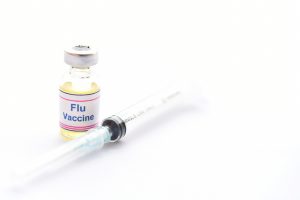
Seqirus says it is confident of supply of its newly approved cell-base influenza A (H5N1) vaccine Audenz in the case of a pandemic.
The US Food and Drug Administration (FDA) gave the thumbs up to Seqirus for its vaccine Audenz (Influenza A (H5N1) Monovalent Vaccine, Adjuvanted), making it the first adjuvanted, cell-based influenza vaccine approved to protect against influenza A (H5N1) in the event of a pandemic.
Seqirus, a subsidiary of CSL Limited, is not planning to market the product for commercial distribution in the US, but instead will supply the Department of Health and Human Services (HHS) under terms of a contract with the US Government as part of national pandemic preparedness initiatives.

Image: iStock/jarun011
According to Seqirus, the vaccine combines two technologies, MF59 adjuvant and cell-based antigen manufacturing.
The MF59 adjuvant “is an important part of pandemic preparedness planning as it reduces the amount of antigen required to produce an immune response, increasing the number of doses of vaccine developed, so that a large number of people can be protected as quickly as possible,” a spokesperson told this publication.
“The antigen is stockpiled and in the event of an H5N1 influenza pandemic it would be rapidly formulated into doses for the US government to deploy to the US population.”
The vaccine antigen, MF59 adjuvant and formulated prefilled syringes used in the vaccine are all produced in Seqirus’ production facility in Holly Springs, North Carolina. The facility is supported through a multi-year public-private partnership between Seqirus and the US Biomedical Advanced Research and Development Authority (BARDA).
In 2018, the site received a $140 million (€128 million) boost to increase its formulation and fill/finish capacity.
While Audenz is focused on treating an influenza A pandemic, it would be amiss not to ask Seqirus whether its formulation and manufacturing technology could be used to address potential other pandemics. Most pertinently, the 2019-nCoV coronavirus, which to date has caused more than 630 deaths.
“Coronavirus is quite different to influenza virus so is not a core area of focus for Seqirus/CSL,” we were told.
“On saying that, given the mounting public health issue that this has become, the company is investigating what adjacencies in expertise, technologies and facilities it might contribute to the global effort. The company is currently very engaged with various institutions to assess possible strategies and options.”
Read more: Egg beater: Seqirus goes fully cell-based for seasonal flu vaccine
About the Author
You May Also Like

schedl_b_and_w.jpg?width=100&auto=webp&quality=80&disable=upscale)
schedl_b_and_w.jpg?width=400&auto=webp&quality=80&disable=upscale)


